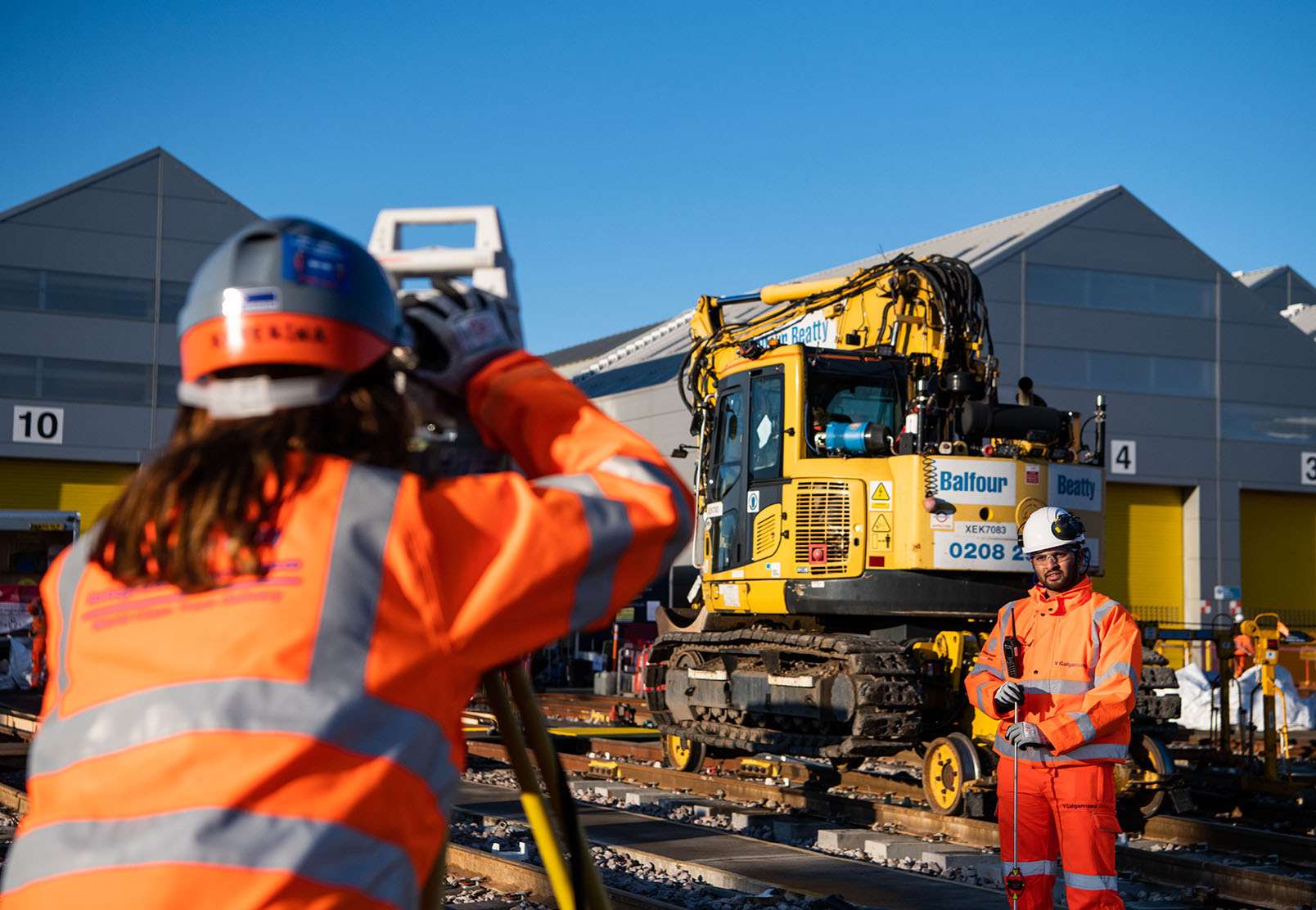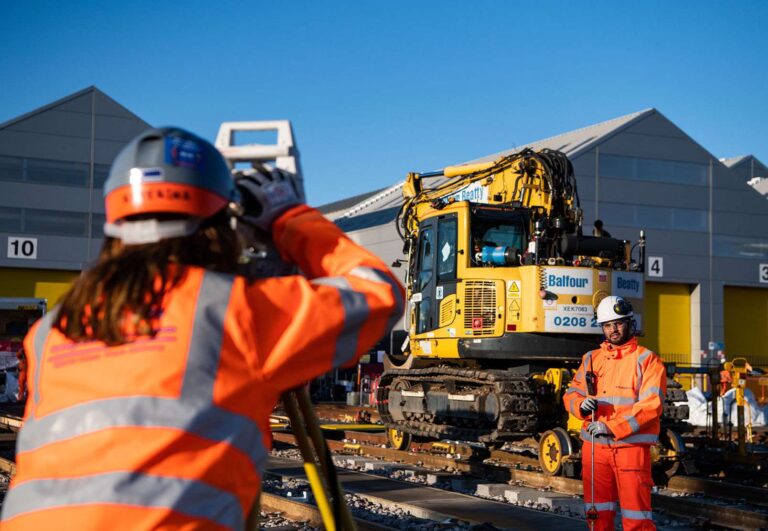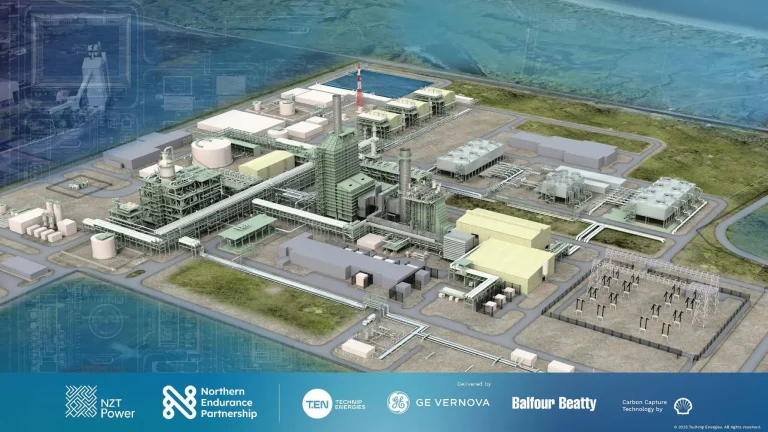BALFOUR BEATTY PLC (LON:BBY) RESULTS FOR THE HALF YEAR ENDED 2 JULY 2021
Re-iterating 2021 outlook; interim dividend up 43% compared to 2019
· Financial and operational performance
o Underlying profit from operations (PFO) at £60 million (2020: £14 million loss)
o Strong Support Services performance also benefited from end of contract gains and exit from gas and water sector
o Construction Services negatively impacted by private sector property projects in central London
o Re-commenced Infrastructure Investments disposals; Directors’ valuation maintained at £1.1 billion (FY 2020: £1.1 billion)
o Continued strong cash performance with average net cash at £611 million (FY 2020: £527 million)
· Growing infrastructure markets
o Group order book at £16.1 billion (FY 2020: £16.4bn); weighted to infrastructure; 80% with public sector & regulated clients
o UK Construction order book at £6.2 billion driven by infrastructure projects; 90% with public sector & regulated clients
o Building on its beyond net zero carbon by 2040 ambition, Group is now a signatory to the UN Race to Zero campaign
· Shareholder returns
o Purchased £99 million of £150 million 2021 share buyback programme in the first half of the year
o Interim dividend at 3.0 pence, 43% higher than pre-pandemic level (2020: Nil; 2019: 2.1 pence)
· Outlook
o Re-iterating 2021 PFO outlook for earnings-based businesses to be in line with 2019
o Support Services margin target range raised from 3-5% to 6-8%; increased Group expectations for 2022
Leo Quinn, Balfour Beatty Group Chief Executive, said: “We continue to reshape Balfour Beatty to play to its strengths. These include leading capability in markets where governments are committed to long-term infrastructure programmes. It means choosing to exclude regions and sectors which cannot provide profitable, low risk growth, in favour of those that can. Our priority is on executing our already strong order book which will drive attractive cash generation and returns.
“Today, we are substantially increasing our interim dividend on the pre-pandemic level and raising margin targets in Support Services.”
GROUP CHIEF EXECUTIVE’S OVERVIEW
Shareholder returns
In March, Balfour Beatty announced a new capital allocation framework based on its confidence in achieving profitable managed growth. This provides a balanced approach between the investment needs of the business, regular dividend payments and additional returns to shareholders. At that time, the Board re-introduced the dividend at a targeted pay-out ratio of 40% of underlying profit after tax (excluding gains from investment disposals). The Board has declared a 3.0 pence interim dividend for 2021, 43% higher than the corresponding pre-pandemic dividend for 2019 (2020: Nil; 2019: 2.1 pence).
Balfour Beatty’s £150 million share buyback programme for 2021 is progressing well, with around £100 million completed in the first half of the year. The Group has also recommenced asset disposals from its Infrastructure Investments portfolio, selling its stake in the BC Children’s and BC Women’s hospitals in June and disposing of a bundle of UK PPP assets subsequent to the period end. In total, around £70 million has been received from these disposals. Both transactions were above the Directors’ valuation, demonstrating the strength of the secondary market for infrastructure assets and reinforcing the Group’s confidence in its capacity to deliver attractive shareholder returns.
In 2021, PFO from the earnings-based businesses (Construction Services and Support Services) is expected to be in line with 2019. Last year, the pandemic had a material impact on Construction Services whilst Support Services was relatively unaffected. This trend has continued into 2021, with outperformance at Support Services offsetting underperformance in Construction Services. Whilst profitability at US Construction and Gammon returned to pre-pandemic 2019 levels, UK Construction was negatively impacted by a small number of private sector property projects in central London. Looking ahead, the Group is increasing its margin target range for Support Services from 3-5% to 6-8% which represents an increase to Group expectations for 2022.
Financial summary
Balfour Beatty continues to progressively recover from the pandemic, with the Group reporting a significant recovery in profitability. For the first half of the year, underlying profit from operations (PFO) was £60 million (2020: £14 million loss) broadly in line with the first half of 2019 (£63 million), underpinning the Board’s confidence in its expectation that full year 2021 PFO for the earnings-based businesses will be in line with 2019 (£172 million).
Both average net cash and period end net cash increased in the half year, even after an outflow of c. £100 million used to buy back Balfour Beatty shares. Both average net cash at £611 million (FY 2020: £527 million) and half year net cash at £625 million (FY 2020: £581 million) demonstrate the strength of Balfour Beatty’s focus on cash management, providing balance sheet strength to make the right decisions for the Group.
At the half year, Balfour Beatty’s order book was £16.1 billion (FY 2020: £16.4 billion), broadly flat at constant exchange rates (CER). The outlook for the Group’s core infrastructure markets remains strong, with Balfour Beatty well positioned to deliver its profitable managed growth strategy through selective bidding.
Operational update
Construction Services: Balfour Beatty’s market-leading position in the UK infrastructure market is built on its unmatched scale and capability for delivering major projects, and increasingly this is its principal focus. During the period, over 90% of UK Construction revenue was from public sector and regulated industry clients (2020: 80%). HS2 Area North has recently agreed the Programme of Best Fit with the client and the Old Oak Common site was visited by the Secretary of State for Transport in June to signal the start of permanent works. At Hinkley Point C, the Group has cast its last nuclear grade reinforced concrete segment. Since production began in 2019, over 38,000 segments have been produced to the highest nuclear specification. The factory in Avonmouth will now be reconfigured to produce concrete segments for the HS2 Bromford tunnels. At Crossrail, Woolwich Station has been handed over and Whitechapel Station is scheduled for handover in the coming weeks, which will mark substantive completion of the Group’s involvement in the capital phase of the programme.
Performance issues at a small number of private sector property projects in central London have been exacerbated by COVID-19 disruptions, leading to a lengthening of project schedules. This situation has necessitated a reassessment of those contract end forecast positions, triggering write-downs. Balfour Beatty will no longer bid for fixed price residential property projects in central London.
Profitability at US Construction in the period was materially higher than in 2020 and also above pre-pandemic levels from 2019. The current phase of the Microsoft Redmond Campus in Washington and the IH-635 highway project in Texas are examples of the underlying operations performing well in the Group’s chosen growth markets. With tendering activity returning to pre-pandemic levels, the focus is on continuing to win quality work and the Group recently won another significant school project in Southern California.
At Gammon, Balfour Beatty’s 50:50 joint venture with Jardine Matheson based in Hong Kong, project execution and work winning continue to be positive, following contract awards at Hong Kong Airport in prior periods. Having recently completed the M+ museum project in West Kowloon, the period end order book continued to increase with Gammon being awarded three significant contracts in the half year: an office tower on Hong Kong Island; four new residential towers in Kowloon; and three further residential towers in Tseung Kwan O New Town.
Across the Group’s construction markets, there has been continued disruption to project schedules caused by longer lead times for product deliveries and price inflation where materials are in scarce supply. Whilst not immune to this, Balfour Beatty is currently mitigating these risks through contractual protection and early buyout using the Group’s scale and supply chain management.
Support Services: Following the strategic repositioning of Support Services (power, road and rail maintenance), it is now characterised by profitable recurring revenues underpinned by long-term contracts. The significant outperformance in the first half of the year is a result of improved performance across the portfolio, coupled with end of contract gains and the Group’s strategic exit from the gas and water sector.
The power and rail maintenance businesses continue to perform strongly and together have successfully completed testing at the Eleclink project, providing a 1,000MW electricity interconnector between France and England through the Channel Tunnel. Despite delays caused by regulatory approvals, the project recognised a significant completion bonus and represents an outstanding example of Balfour Beatty’s successful delivery of complex infrastructure for its clients. Given Support Services’ robust order book and positive market outlook, the Group is upgrading its margin target range from 3-5% to 6-8%.
Infrastructure Investments: At half year, the Directors’ valuation of the Investments portfolio was £1.1 billion, consistent with prior periods. The Group continues to invest in attractive new opportunities, each expected to meet its investment hurdle rates. Financial close was achieved at the Vanderbilt University student accommodation project in April, and the Group is preferred bidder at the University of Massachusetts, Amherst and the Royal Holloway student accommodation project.
In June, the Group recommenced asset disposals with the sale of its stake in the BC Children’s and BC Women’s hospitals located in Vancouver, Canada, for £20 million. Subsequent to the half year, Balfour Beatty sold its interests in a bundle of UK PPP assets for £48 million. Both transactions were above the Directors’ valuation, demonstrating the strength of the secondary market for infrastructure assets.
The investigation by the US Department of Justice (DoJ) into the handling of certain work orders by Balfour Beatty Communities at a number of US military bases remains ongoing. Balfour Beatty’s own investigation is substantially complete, and the Group’s findings have been shared with the DoJ. The Group’s external resolution counsel is engaging with the DoJ, with the intention of seeking resolution but as the DoJ investigation is still ongoing, the Group is not able to provide any further indication or measure with sufficient reliability the outcome of the investigation, including timing or any quantum of any possible fine, penalty or damages that may arise.
Infrastructure markets
As a key lever of economic growth, the construction and infrastructure industry is central to a sustainable recovery in the Group’s core markets. New, low carbon infrastructure (HS2, wind power, energy efficient buildings, carbon capture, new nuclear, rail electrification) will play a leading role in stimulating growth. From the ten-point Green Industrial Revolution launched by the UK Prime Minister, to President Biden’s proposed Clean Energy Plan, governments are investing to ensure economies come back stronger from the pandemic in a more sustainable manner.
In November 2020, the UK Government released details of its five-year plan, the National Infrastructure Strategy (NIS), to invest in digital, transport and energy to drive economic recovery, level up and meet the UK’s net zero emissions target by 2050. The £640 billion of funding announced for developments in roads, railways, power networks, schools, hospitals and telecommunications represents an increase of around £100 billion compared to previously announced plans.
In the US, the proposed US$1 trillion bipartisan Infrastructure Investment and Jobs Act includes additional funding to upgrade roads, bridges, public transport and energy projects over the next five years. This represents an increase of around US$550 billion compared to previously announced plans. This investment is positive for the infrastructure sector in combination with a growing P3 market in which Balfour Beatty combines the expertise of its Construction and Investments businesses.
Gammon has an approximate 10% share of the Hong Kong market, which has historically benefited from significant public sector investment. The social and economic infrastructure outlook for Hong Kong is positive following the government’s announced ambition in its February 2021 budget to increase spend materially over the medium term. Major expansions of Hong Kong Airport and the MTR subway system have commenced and are expected to continue in the coming years, whilst social infrastructure programmes to develop hospitals and housing are also well underway.
In Support Services, the markets for power, road and rail maintenance are all positive. In power, the proposed RIIO-2 spend period (2021-2026) includes £30 billion for investment in energy networks and potential for a further £10 billion on green energy projects. The highways maintenance market is forecast to see significant investment with the announcement of an additional £2.5 billion in funding, increasing local council budgets by 45% over the next five years. In addition, over £700 million of outsourced contracts are up for renewal between 2021 and 2025. The rail maintenance market also has a positive trajectory with an additional £10 billion of funding for renewals as part of Network Rail’s current CP6 control period (2019-2024).
Balfour Beatty’s competitive expertise to finance, develop, build and maintain infrastructure puts the Group in a strong position to capitalise on new investment opportunities; notably in US P3 projects and student accommodation. The demand for infrastructure assets from the secondary market continues to exceed supply and having re-commenced disposals Balfour Beatty will selectively sell assets to maximise value from its portfolio.
Overall, Balfour Beatty is positive on the outlook for the Group’s chosen markets. The picture in the US is improving, with progress towards the bipartisan infrastructure deal; whilst in the UK, Project Speed has accelerated some road projects but is yet to fulfil its potential. The Group starts from a position of strength given its order book, so it is critical that Balfour Beatty continues to deliver on its strategy for continuous improvement in the core Build to Last values that have shaped its transformation. The Group will continue to bid where it can win work on the right terms and conditions, with appropriate margin targets and ensuring risk is adequately priced.
Build to Last
The Group’s Build to Last strategy has created a self-help culture based on five core values: Lean, Expert, Trusted, Safe and Sustainable. The Group’s progress is measured using cash flow and profit from operations, employee engagement, customer satisfaction, Zero Harm and CO2 emissions, respectively.
Lean: The disciplines learnt during the Build to Last transformation have served the Group well in maintaining efficient operations during the pandemic. In the first half of the year, the business continued its drive to improve efficiency, reduce cost and upgrade the capability of performance across the organisation. Underlying net operating expenses reduced further to £105 million (2020: £117 million) – a reduction of more than 55% since the start of Build to Last (2014: £242 million, adjusted for foreign exchange movements).
The Group’s successful focus on cash generation is evidenced by average net cash for the half year at £611 million (FY 2020: £527 million). As a key part of its strategy to create value by achieving market leadership, the Group has invested over £650 million since 2015 in equity assets (Infrastructure Investments), capex (IT, plant and fleet) and capability (training and development). These disciplines in cash management and cost efficiencies have been fundamental to the Group’s financial transformation. Maintenance of a strong and efficient balance sheet forms part of Balfour Beatty’s capital allocation framework.
Expert: Customers buy Balfour Beatty’s services due to the expert capabilities of the Group and its employees. The key metric for Expert is employee engagement. No survey was held in the first half of the year, but in direct response to the Group’s 2020 employee engagement survey, where the second lowest score was employees not feeling able to give back to the community or a charity, in May Balfour Beatty announced it will match employees’ fundraising efforts pound for pound for its three UK corporate charity partners: Project RECCE; The Prince’s Trust; and Groundwork. Balfour Beatty also reinvigorated its volunteering policy which allows two paid volunteering days each year. The benefits of this approach for Balfour Beatty include proof of added social value for its work winning teams and a direct contribution to its Sustainability Strategy’s 2040 ambition to positively impact more than one million people.
In January 2021, the UK Government’s Build Back Better Business Council was created. The Council, which brings together 30 business leaders from across the British economy, meets quarterly with three meetings held so far. As the key representative from the construction and infrastructure sector, Leo Quinn has engaged with others across the sector, including design partners, supply chain partners and other Tier 1 contractors in a series of focused sessions. Key themes have been distilled from these meetings, including: the need for pipeline certainty; planning system reform; action to address the skills gap; and the importance of a genuinely collaborative approach to deliver net zero.
Trusted: Balfour Beatty is trusted to “do what we say we will do” and is measured on this metric by customer satisfaction. In the half year, around 500 customer satisfaction reviews were carried out with the Group’s customer satisfaction score at 96% (FY 2020: 95%). The Group continues to focus on active risk management, underpinning strict adherence to its Build to Last values with investment in IT-based processes and controls. These include the Gated Business Lifecycle process, the Digital Briefcase and Project on a Page. Together, these provide management with a clear, consistent line of sight on all stages of work being bid and delivered, along with key tools for managing commercial risk and project execution.
During the period, Balfour Beatty has been awarded a number of material contracts across its chosen geographies including:
· Hinkley Point C offshore works: Next phase of contract relating to a pair of underwater tunnels to supply the nuclear power station with cooling water and a third tunnel to discharge heated water back into the Bristol Channel;
· Oxnard High School: Construction of a new high school campus for the Oxnard Union High School District, California; and
· Lohas Park: Contract to construct three residential towers atop a five-level podium, as well as four link bridges, at Lohas Park in Tseung Kwan O New Town, Hong Kong.
Safe: Construction is an inherently dangerous industry. It is therefore essential that the safety, health and wellbeing of everyone who comes into contact with Balfour Beatty is the top priority. However, vigilance can never be relaxed. In July a colleague working in the Group’s US joint venture operations lost his life. An investigation is underway and safety leaders will make sure that all learnings are shared and implemented quickly across Balfour Beatty. In remembering those lost, the Group will continue to strive for Zero Harm across all of Balfour Beatty’s operations.
The Group’s lost time injury rate (excluding international joint ventures) increased to 0.12 in the half year (FY 2020: 0.10). This upturn reflects a wider industry trend believed to be related to pandemic fatigue and skills shortages. Leading indicators continue to trend positively through increased health and safety observations. The Group’s safety focus remains on its four Golden Rules (Be fit for work; Always receive a briefing before starting work; Report all unsafe events and conditions; and Stop work if anything changes).
Sustainable: In December 2020, Balfour Beatty introduced Sustainable as a fifth Build to Last value and launched the Group’s new Sustainability Strategy, Building New Futures. The focus has continued in 2021 with the launch of a UK addendum to the Group strategy, which supports work winning teams by demonstrating Balfour Beatty’s strong ESG credentials. Since the introduction of PPN 06/20 last year, every UK Government contract is required to have a minimum 10% weighting in social value for each procurement decision.
As part of its Sustainability Strategy, Balfour Beatty committed to formally setting a science-based target for 2030. Whilst the Group is developing its science-based target, it has signed up to the United Nations Race To Zero campaign to build momentum around the shift to a decarbonised economy ahead of COP26. This requires the Group to set a net zero target in line with a 1.5°C future to hold off some of the worst climate impacts. For Balfour Beatty, this means halving emissions by 2030 (relative to 2020) and achieving Beyond Net Zero by 2040.
Balfour Beatty is currently rated AA by MSCI and medium risk by Sustainalytics. In addition, the Group was recently included on the Financial Times listing of Europe’s Climate Leaders 2021 that details corporate progress in fighting climate change and lists the 300 companies which achieved the greatest reduction in their greenhouse gas (GHG) emissions intensity between 2014 and 2019. The key metric for Sustainable is reducing CO2 emissions, with the Group producing audited figures on an annual basis.
My Contribution is Balfour Beatty’s engagement programme for employee led business improvement. The recent four week My Contribution sustainability campaign generated more than 750 ideas to support local delivery of the Group’s sustainability targets and ambitions. All ideas are now being reviewed for implementation.
Board of Directors
On 13 May 2021 Charles Allen, Lord Allen of Kensington, CBE, joined the Board as a Non-Executive Director. On 20 July 2021 he was appointed as Chair of Balfour Beatty, succeeding Philip Aiken, AM. On 31 July 2021, Philip stepped down from the Board.
Lord Allen has extensive corporate experience across a range of sectors, most notably in support services and media. His previous positions include Chair of ISS AS, Executive Chair of EMI Music, Chief Executive of ITV plc, Chief Executive of Compass Group and Chief Advisor to the UK Home Office. He sits in the House of Lords and currently holds positions as Advisory Chairman, Moelis & Company and Chairman of Global Media & Entertainment.
Outlook
The need to stimulate economic recovery from the pandemic, coupled with political changes in the US and UK, have accelerated those Governments’ spending programmes on infrastructure and sustainability. Today, Balfour Beatty is well positioned to capitalise on these changes to grow profitably in its chosen markets.
The Board is re-iterating its expectation that the Group’s earnings-based businesses will deliver PFO for 2021 in line with 2019 and has declared an interim dividend 43% above the corresponding pre-pandemic dividend for 2019. In addition, the Group is raising its Support Services margin target range from 3-5% to 6-8% which represents an increase in Group expectations for 2022. The ongoing share buyback programme demonstrates that the Group has the capacity to deliver attractive shareholder returns through its multi-year capital allocation framework.








































